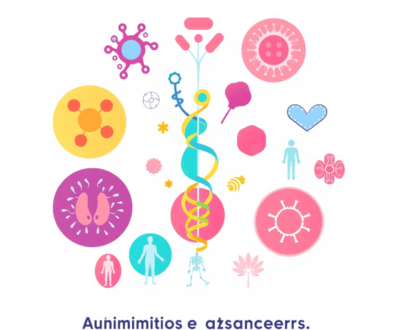Supplements That May Interact with Prescription Drugs—What to Watch Out For
Understanding the Risks of Supplement and Prescription Drug Interactions
1. Importance of understanding supplement and prescription drug interactions:
- Combining supplements with prescription drugs can lead to potentially harmful interactions that affect the efficacy and safety of medications.
- Lack of awareness about these interactions can put individuals at risk of adverse effects or treatment failure.
2. Prevalence of adults using both supplements and medications:
- Many adults take dietary supplements alongside prescription medications without realizing the possible consequences of combining them.
- It’s common for individuals to self-prescribe supplements without consulting healthcare professionals, increasing the likelihood of interactions.
3. Potential risks including reduced effectiveness, increased toxicity, and unexpected side effects:
- Interactions between supplements and prescription drugs can diminish the intended effects of medications, leading to suboptimal treatment outcomes.
- Some combinations may amplify the toxicity of certain drugs, posing serious health risks.
- Unexpected side effects may arise when supplements alter the way drugs are metabolized in the body, impacting their overall function.
By being aware of these risks and seeking guidance from healthcare providers, individuals can make informed decisions about supplement use alongside prescription medications, ensuring their safety and well-being.
Common Supplements That Interact with Prescription Medications
When it comes to supplements interacting with prescription medications, certain common culprits can lead to unwanted effects. Here’s a snapshot of some well-known interactions to keep on your radar:
- Vitamin B6: Known to reduce the effectiveness of levodopa, a medication often used to manage Parkinson’s disease symptoms.
- Vitamin K: Can interfere with blood-thinning medications like Warfarin (Coumadin), potentially affecting their ability to prevent blood clots effectively.
- Iron and Calcium: These minerals have been shown to impact the absorption and efficacy of thyroid hormone replacement therapy.
- St. John’s Wort: Famously known for weakening the effects of various medications, including those used for heart conditions and HIV treatments.
These examples highlight the intricate dance between supplements and prescription drugs. It’s crucial to be aware of these interactions to ensure your health management plan is as effective as possible.
Specific Harmful Supplement-Drug Combinations to Watch For
Here are some supplement-drug pairs that can cause harmful side effects:
1. Vitamin C and Aluminum-Containing Antacids: Vitamin C can interact with aluminum-containing antacids, reducing their absorption and efficacy. This combination may hinder the body’s ability to utilize both substances effectively.
2. Vitamin E and Anticoagulants: When vitamin E is combined with anticoagulants (blood thinners), it can increase the risk of bleeding due to its blood-thinning properties. This interaction could potentially lead to serious complications.
3. Risks of Goldenseal, Ginkgo Biloba, and Licorice Root: Goldenseal, ginkgo biloba, and licorice root are known to have interactions with blood clotting medications and blood pressure drugs. These supplements may interfere with the mechanisms of action of these medications, impacting their effectiveness or safety.
Remember, being aware of these specific harmful combinations is crucial for safe and effective management of your health. Always consult with your healthcare provider or pharmacist before combining supplements with prescription medications to avoid potential risks and adverse effects.
How Supplements Affect Drug Pharmacokinetics and Pharmacodynamics
Supplements can have a significant impact on how drugs are absorbed, metabolized, and how they exert their effects in the body. Understanding these interactions is crucial for ensuring the effectiveness of prescribed medications and minimizing potential side effects.
Influence of Supplements on Drug Absorption
Drug absorption refers to the process by which a medication enters the bloodstream after being administered. Certain supplements may affect this process by altering the pH levels in the stomach or influencing gastrointestinal motility. For example, some supplements may increase gastric acidity, which can enhance the absorption of certain drugs that require an acidic environment for optimal uptake.
Role of Liver Enzymes in Drug Metabolism
The liver plays a vital role in drug metabolism, where enzymes break down medications into their active or inactive forms. One key enzyme involved in this process is the CYP3A4 enzyme, which is responsible for metabolizing a wide range of drugs. Certain supplements can either induce or inhibit the activity of this enzyme, leading to altered drug levels in the body.
High-Risk Supplements Affecting Liver Enzymes
- St. John’s Wort: This herbal supplement is commonly used for depression but has been shown to induce CYP3A4 activity, potentially reducing the effectiveness of certain antidepressants and other medications.
- Goldenseal: Known for its immune-boosting properties, goldenseal contains an alkaloid called berberine that can inhibit CYP3A4 activity. This may result in increased levels of drugs metabolized by this enzyme, leading to potential toxicity.
Mechanisms of Drug Action and Supplement Interactions
In addition to influencing absorption and metabolism, supplements can also interact with the mechanisms through which drugs exert their effects. For instance, some supplements may compete with medications for binding sites on receptors or transporters, thereby affecting their efficacy.
It is important to note that these interactions can vary depending on individual factors such as genetics, overall health status, and concurrent use of other medications or supplements. Therefore, it is advisable to consult with a healthcare professional before starting any new supplement regimen, especially if you are taking prescription drugs.
By understanding how supplements can impact drug pharmacokinetics and pharmacodynamics, both patients and healthcare providers can make informed decisions about managing medication therapies effectively.
Timing and Dosage Considerations to Minimize Interactions with Supplements and Prescription Drugs
To reduce the risks of interactions between supplements and prescription drugs, it’s crucial to space out doses by at least two hours. This interval helps minimize the chances of one affecting the absorption or effectiveness of the other.
Practical tips for managing timing:
- Consult a healthcare provider: Before adjusting your supplement or medication schedule, always seek advice from a healthcare professional. They can offer personalized guidance based on your specific medications and supplements.
- Create a schedule: Develop a clear timetable for taking your supplements and prescription drugs. This can help you stay organized and ensure you’re following the correct spacing recommendations.
- Use reminders: Set alarms on your phone or place reminders in visible areas to help you remember when to take each supplement or medication. Consistency is key to maintaining the appropriate timing.
By carefully managing the timing and dosage of supplements alongside your prescription drugs, you can minimize the risks of interactions and maximize the benefits of both treatments. Remember, a well-planned schedule can contribute significantly to your overall health and wellness journey.
Populations Requiring Extra Caution with Supplement Use Alongside Prescription Medications
Certain groups deserve extra vigilance when mixing supplements with prescription drugs. Their bodies don’t always play by the usual rules.
1. Children
Children metabolize substances differently than adults. Their organs, especially the liver and kidneys, are still developing. This makes dosing tricky and increases the risk of unexpected side effects or toxicity.
2. Pregnant women
Pregnant women face a double-edged sword: whatever they take can affect both them and their developing baby. Supplements that seem harmless might interfere with pregnancy hormones or fetal development. Some herbs can even trigger contractions or other complications.
3. Breastfeeding individuals
Breastfeeding individuals pass many compounds to their babies through milk. Supplements that alter hormone levels or have stimulant effects could pose risks for newborns who are much more sensitive.
4. Individuals undergoing surgery
Surgery introduces its own set of challenges. Many supplements influence blood clotting, blood pressure, or anesthesia metabolism. It’s wise to stop taking certain supplements at least 2–3 weeks before surgery to avoid bleeding complications, unpredictable drug interactions, or delayed healing.
Key supplements to watch out for before surgery include:
- Ginkgo biloba
- Garlic
- Ginseng
- St. John’s Wort
Healthcare providers must be aware of all supplement use well in advance of any procedure to manage these risks effectively.
Safety Concerns Due to Lack of Regulation in the Supplement Industry That May Lead to Dangerous Interactions with Prescription Drugs
Dietary supplements are not regulated as strictly as prescription drugs. The FDA does not assess the safety or effectiveness of supplements before they are sold. As a result, the quality and safety of supplements can vary greatly between different brands.
Here are some potential issues to be aware of:
- Inconsistent dosages: The amount of active ingredient in a supplement may not match what is stated on the label.
- Hidden ingredients: Some supplements may contain undisclosed substances that could trigger allergic reactions or interfere with medications.
- Contamination risks: Poor manufacturing practices can lead to contamination of supplements with harmful substances such as heavy metals, pesticides, or even analogs of prescription drugs.
This lack of regulation makes it challenging to manage the risks associated with supplements that may interact with prescription drugs. Even if a supplement appears harmless, it could still pose a threat if it contains undisclosed ingredients or varying doses.
So how can you protect yourself?
- Choose brands that adhere to Good Manufacturing Practices (GMP).
- Look for third-party certifications from organizations such as USP, NSF International, or ConsumerLab.
- Carefully review ingredient lists and steer clear of products making outrageous health claims.
By being diligent about these factors, you can help minimize the risks associated not only with potential interactions but also with the overall quality and safety of the supplements you incorporate into your routine.
Resources for Checking Supplement-Drug Interactions Before Combining Them With Prescription Medications
When it comes to combining supplements with prescription medications, it’s essential to be aware of potential interactions that could affect your health. Fortunately, there are several reliable resources available to help you navigate this process and make informed decisions.
1. Reliable Online Tools
Websites like MedlinePlus and Drugs.com offer interactive tools to check for potential interactions between supplements and prescription drugs. These resources provide comprehensive databases and updated information to help you make informed decisions about your health.
- MedlinePlus – A trusted source of health information that includes a section on dietary supplements and their potential interactions.
- Drugs.com Interaction Checker – An online tool that allows you to enter multiple medications and supplements to check for any possible interactions.
2. Role of Pharmacists and Healthcare Providers
Pharmacists and healthcare providers play a crucial role in guiding you on safe supplement use alongside prescription medications. They can offer personalized advice based on your specific health conditions, current medications, and individual needs.
- Schedule an appointment with your pharmacist or healthcare provider to discuss any supplements you are considering taking.
- Be prepared to provide them with a list of all your current medications, including over-the-counter drugs and herbal supplements.
3. Personalized Advice and Dose Adjustments
Consulting with a pharmacist or healthcare provider allows for tailored recommendations on dosage adjustments or alternative supplements that are less likely to interact with your prescribed medications. This proactive approach helps minimize the risks associated with combining supplements and drugs.
- Ask your pharmacist or healthcare provider about any potential interactions between the supplements you are taking and your prescription medications.
- Inquire about possible alternatives to the supplements that may have a lower risk of interaction.
By utilizing these reliable resources and seeking professional guidance, you can proactively manage potential interactions between supplements and prescription medications. Remember, when in doubt, always consult with a healthcare professional for personalized advice tailored to your unique health profile.
Conclusion
When it comes to Supplements That May Interact with Prescription Drugs—What to Watch Out For, playing it safe means one thing: talk to your pharmacist or healthcare provider. They’re the pros at untangling complex interactions and tailoring advice for your unique medication cocktail. Never guess when it comes to mixing supplements and prescriptions—your health is worth the expert insight.
Remember:
- Pharmacist consultation is your frontline defense against dangerous interactions.
- Open communication about every pill and supplement you take ensures safe medication use.
- For Toronto locals, misterpharmacist.com stands out as the only 5-star rated online pharmacy delivering reliably across the GTA. Convenience meets trust for your prescription needs.
Don’t let supplement-drug clashes catch you off guard. Reach out, get informed, and keep your health on point with expert guidance and dependable pharmacy service.



